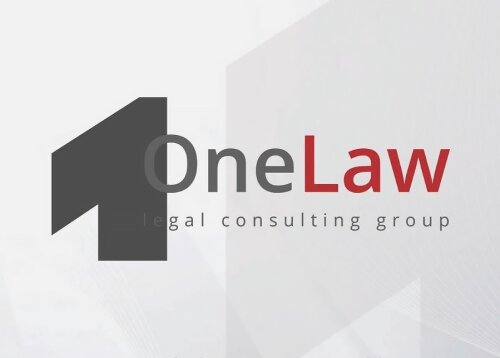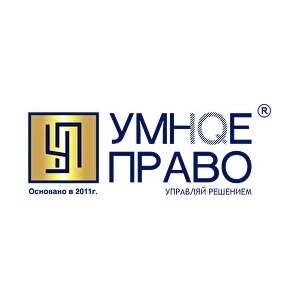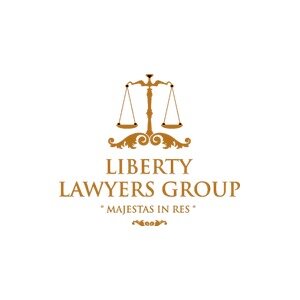Best Energy Regulatory Law Lawyers in Russia
Share your needs with us, get contacted by law firms.
Free. Takes 2 min.
Or refine your search by selecting a city:
List of the best lawyers in Russia
About Energy Regulatory Law in Russia
Energy regulatory law in Russia governs how energy is produced, distributed, sold, and consumed across the country. It is a complex field involving a wide range of legal rules and technical standards affecting oil, gas, electricity, and increasingly renewable sources of energy. Russian energy legislation covers everything from licensing and environmental standards to tariffs and market competition, and is closely tied to state interests given the crucial role energy plays in the national economy. Key regulations are established by federal laws, government decrees, and the decisions of regulatory authorities.
Why You May Need a Lawyer
There are a variety of scenarios where individuals or businesses might need a lawyer with expertise in Russian energy regulatory law. Common situations include:
- Entering into contracts for the sale or purchase of energy resources
- Seeking licenses or permits for energy production, distribution, or supply
- Compliance with environmental and safety regulations for energy projects
- Resolving disputes between energy suppliers and consumers
- Handling administrative cases involving regulatory authorities
- Dealing with tariff setting or changes in energy pricing
- Navigating foreign investment restrictions or requirements in the energy sector
- Challenging or responding to legislative changes affecting your business
- Addressing issues related to the use of land, water, or other resources in connection with energy projects
Legal professionals can offer valuable advice, help ensure compliance, represent you before authorities, and assist in dispute resolution to protect your interests.
Local Laws Overview
Russia's energy regulatory framework is shaped by several main legal instruments and authorities. The principal law is the Federal Law on the Electric Power Industry, supported by laws such as the Subsoil Law, the Law on Gas Supply, and the Law on the Protection of the Environment. Regulation of tariffs and market access is carried out by the Federal Antimonopoly Service and the Ministry of Energy, among others. Here are key aspects of local energy regulation:
- Licensing is mandatory for many activities including extraction, generation, transmission, and distribution of energy.
- Energy tariffs are regulated by the state in most cases, especially for natural monopolies like electricity and gas networks.
- Foreign investments in the strategic sectors, including energy, may be subject to additional approval or restrictions.
- Environmental regulations require projects to undergo state expert review and follow strict controls.
- Antimonopoly legislation seeks to ensure fair competition and prevent abuse of dominant market positions.
The legal landscape is influenced by major national priorities and can be subject to frequent changes, making it important to stay alert to new developments and amendments.
Frequently Asked Questions
What types of energy are regulated in Russia?
Russia regulates a broad range of energy types, including oil, natural gas, coal, electricity, and renewables such as wind and solar power. Each segment may have specific laws and regulatory bodies overseeing its activities.
Who are the main regulatory authorities in the Russian energy sector?
The Ministry of Energy, the Federal Antimonopoly Service, the Federal Service for Environmental, Technological, and Nuclear Supervision, and the Ministry of Natural Resources play key regulatory roles.
Do I need a license to generate or sell electricity in Russia?
Yes, most energy-related activities such as generation, transmission, and sale of electricity require licenses issued by the relevant authorities.
How are energy tariffs determined?
Tariffs for electricity and gas are regulated by the state, generally set by specialized commissions and published by the government following legal requirements and methodologies.
Are there restrictions on foreign ownership in the Russian energy sector?
Yes, foreign entities may face restrictions or need special approvals to invest in strategic sectors, which include many aspects of energy development and infrastructure.
What legal steps are required to start an energy project?
You typically need to undergo feasibility assessments, obtain proper licenses or permits, conduct environmental reviews, and secure approvals from a variety of regulatory agencies.
What is a production sharing agreement (PSA) in Russia?
A PSA is a legal agreement between the state and investors, usually used in the oil and gas sector, where production outputs and investment returns are shared according to specific terms.
How are disputes in energy regulation resolved?
Disputes can be resolved by negotiation, through the regulatory authority’s procedures, or in court. Industry-specific arbitration is also sometimes used.
How are renewable energy projects regulated?
Although still developing, there are growing sets of laws and policies that provide for incentives, licensing, and specific technical standards for renewable energy projects.
What are the penalties for violating energy regulatory laws?
Penalties vary but may include fines, suspension or revocation of licenses, orders to remedy violations, or, in serious cases, criminal liability for responsible officials.
Additional Resources
If you need further information or legal assistance, the following organizations and resources can be helpful:
- Ministry of Energy of the Russian Federation
- Federal Antimonopoly Service (FAS Russia)
- Federal Service for Environmental, Technological, and Nuclear Supervision
- Public chambers and associations involved in energy policy
- Professional law firms specializing in energy regulatory practice
Many of these bodies provide informational materials, regulatory updates, and official guidance on their websites or through public outreach offices.
Next Steps
If you find yourself needing legal help regarding energy regulatory law in Russia, here are the steps you should consider:
- Clearly define your issue or question - the more information you have, the better
- Gather relevant documentation such as contracts, permits, correspondence, and regulatory notices
- Consult with a qualified lawyer or legal advisor who has experience in Russian energy law
- Confirm the lawyer’s credentials and their familiarity with local regulatory bodies and procedures
- Request an initial case evaluation or consultation to discuss possible strategies
- Follow professional legal advice to ensure compliance and protect your rights at every step
Early and informed legal assistance can save time, help avoid penalties, and provide the best pathway to a favorable outcome in this highly regulated and strategically important sector.
Lawzana helps you find the best lawyers and law firms in Russia through a curated and pre-screened list of qualified legal professionals. Our platform offers rankings and detailed profiles of attorneys and law firms, allowing you to compare based on practice areas, including Energy Regulatory Law, experience, and client feedback.
Each profile includes a description of the firm's areas of practice, client reviews, team members and partners, year of establishment, spoken languages, office locations, contact information, social media presence, and any published articles or resources. Most firms on our platform speak English and are experienced in both local and international legal matters.
Get a quote from top-rated law firms in Russia — quickly, securely, and without unnecessary hassle.
Disclaimer:
The information provided on this page is for general informational purposes only and does not constitute legal advice. While we strive to ensure the accuracy and relevance of the content, legal information may change over time, and interpretations of the law can vary. You should always consult with a qualified legal professional for advice specific to your situation.
We disclaim all liability for actions taken or not taken based on the content of this page. If you believe any information is incorrect or outdated, please contact us, and we will review and update it where appropriate.
Browse energy regulatory law law firms by city in Russia
Refine your search by selecting a city.

















